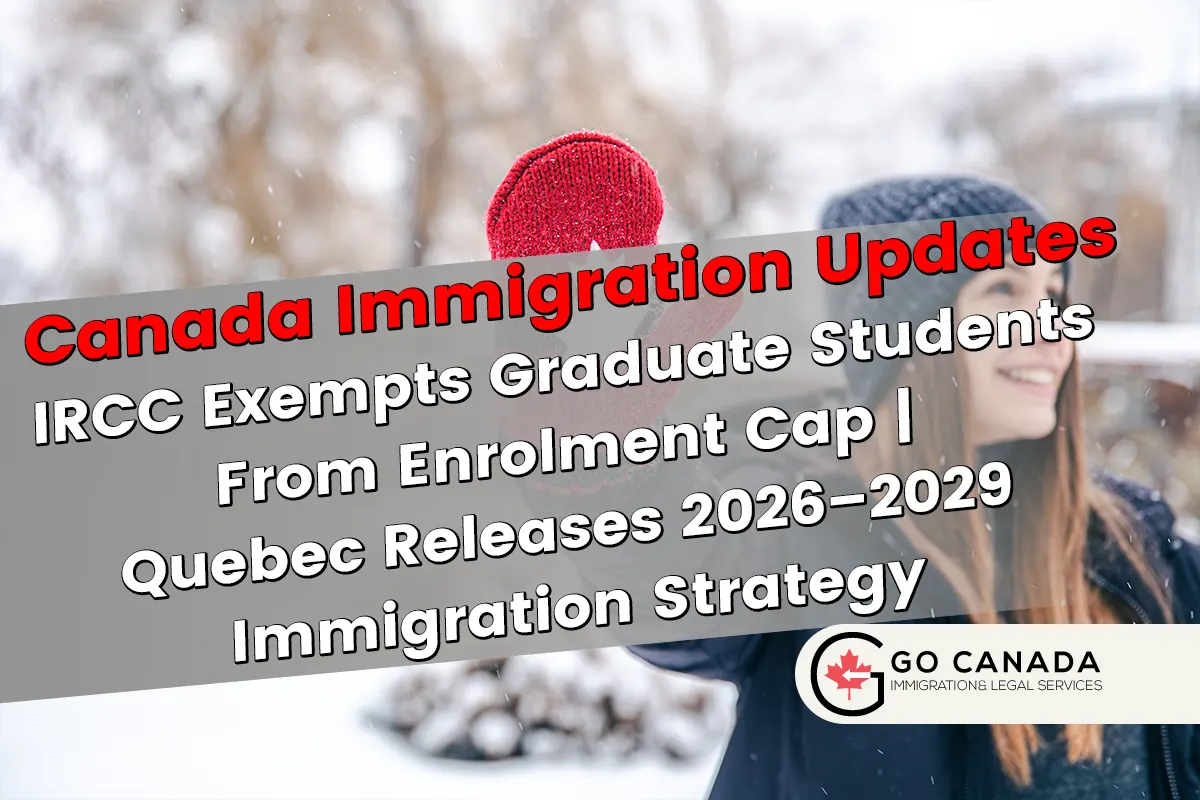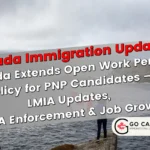IRCC will exempt master’s and PhD students from Canada’s international student cap starting January 1, 2026, while Quebec unveils a reduced-intake immigration plan for 2026–2029. Alberta and Manitoba continue targeted PNP activity. Learn how these updates affect study permits, PR pathways, and provincial selection.
IRCC exempts graduate students from enrolment cap and fast-tracks PhD processing
Immigration, Refugees and Citizenship Canada has announced major changes that reshape graduate admissions and long-term immigration planning. Beginning January 1, 2026, master’s and PhD candidates at public universities will be exempt from the federal international student cap, eliminating the need for Provincial Attestation Letters and reducing friction for institutions and applicants alike. In parallel, IRCC will introduce 14-day study-permit processing for PhD applicants, extended to accompanying family members.
For students mapping a path from studies to permanent residence, our team can help you evaluate eligibility and timelines. Explore pathways on Permanent Resident Canada and get hands-on assistance with documentation and planning through Study Permits. If you’re just getting started, request a quick Free Assessment so we can recommend your best route. Prefer to talk to a specialist? Reach out via Contact. To see how we’ve helped others, browse our Portfolio or visit the News hub for ongoing policy updates.
These measures reinforce Canada’s position as a research destination while supporting graduate enrolment growth in critical fields—STEM, health, and advanced manufacturing. They also tighten the connection between graduate study and long-term settlement outcomes, offering a clearer runway to PR for qualified candidates.
Quebec unveils 2026–2029 immigration strategy with reduced intake targets
Quebec’s new four-year plan focuses on balancing labour needs with integration capacity. Highlights include 45,000 permanent residents in 2026, 84,900–124,200 temporary admissions (TFW + international students), and the Skilled Worker Selection Program as the sole PR pathway for skilled workers. The Quebec Experience Program (PEQ) ends November 19, 2025, and French-language rules will apply to temporary foreign workers to support francization.
If your profile aligns better with federal or other provincial programs, our consultants can design a cross-Canada strategy—combining study, work, and PR streams—to match your timing and goals. Start with a tailored Free Assessment, or learn about family-based routes under Family Sponsorship.
Alberta and Manitoba continue targeted provincial selection
Alberta’s recent rounds under the Alberta Advantage Immigration Program (AAIP) invited priority-sector candidates across health care, construction, and law enforcement, while the Alberta Opportunity Stream continued to select in-demand profiles. This sectoral targeting keeps pace with regional hiring needs and offers strong landing options for candidates who pair work experience with postsecondary credentials.
Manitoba’s MPNP maintained invitations through Skilled Worker in Manitoba and Skilled Workers Overseas, including Express Entry-linked selections for candidates with validated job-seeker profiles. Together, these draws signal that PNPs remain a vital route to PR—even as federal study quotas tighten at the undergraduate level.
If you’re considering a worker-led pathway, review our Skilled Worker Program overview. Visiting first to explore employers or campuses? See Visitors to Canada and our Education Services – Study in Canada to align short-term travel with long-term goals.
Why Choose Go Canada Services?
As a Canadian-incorporated firm, we uniquely integrate Academic Services, Immigration Services, and Integration Services—from school matching and document prep to PNP/Express Entry filings and settlement support. Since 2004, our team has delivered compliance-first guidance with a practical, results-oriented approach. If we’ve helped you, consider sharing your experience on our review on Google page to help others choose confidently.

FAQ — Questions & Answers
Are graduate students exempt from Canada’s international enrolment cap?
Yes. Starting January 1, 2026, master’s and PhD students at public universities are exempt from the international student cap and do not require a Provincial Attestation Letter.
How fast will PhD study permits be processed?
IRCC will fast-track PhD study permit applications within approximately 14 days. This expedited process extends to accompanying family members.
Does this new exemption apply to private institutions?
No. The exemption applies only to graduate students (master’s and PhD) enrolled at public universities.
Is Quebec reducing the number of newcomers?
Yes. Quebec announced lower permanent resident intake targets for 2026–2029, welcoming 45,000 PRs in 2026 along with reduced temporary resident admissions.
What is happening to the Quebec Experience Program (PEQ)?
The PEQ will be phased out by November 19, 2025. The Skilled Worker Selection Program becomes the only PR pathway for economic immigrants.
Did Alberta hold new AAIP draws?
Yes. Alberta conducted multiple targeted AAIP draws in late October — inviting candidates under the Alberta Opportunity Stream, the Dedicated Health Care Pathway, Priority Sectors, and Law Enforcement pathways.
Did Manitoba hold an MPNP draw?
Yes. Manitoba invited skilled workers under MPNP round #267, including candidates through Skilled Worker in Manitoba and Skilled Workers Overseas, with some linked to Express Entry.
Call to Action
Ready to plan your Canadian pathway? Begin with a quick Free Assessment, explore Study Permits or Permanent Resident Canada, and connect with an advisor via Contact.
Hashtags
#canada_immigration, #graduate_students, #phd_programs, #study_permits, #international_students, #ircc, #quebec_immigration, #immigration_plan_2026_2029, #aaip, #manitoba, #mpnp, #skilled_workers, #express_entry, #permanent_residency


